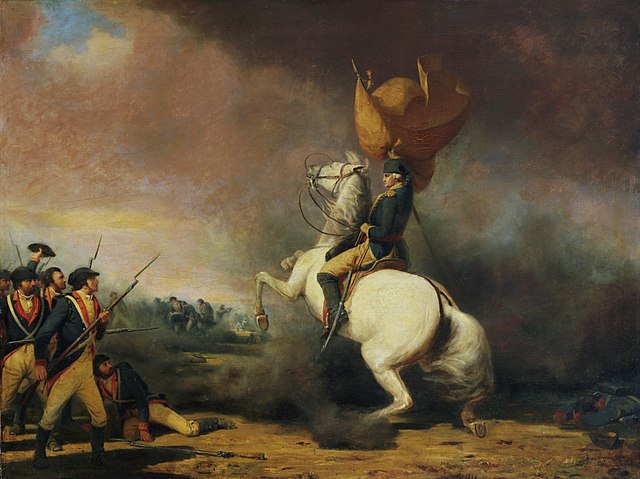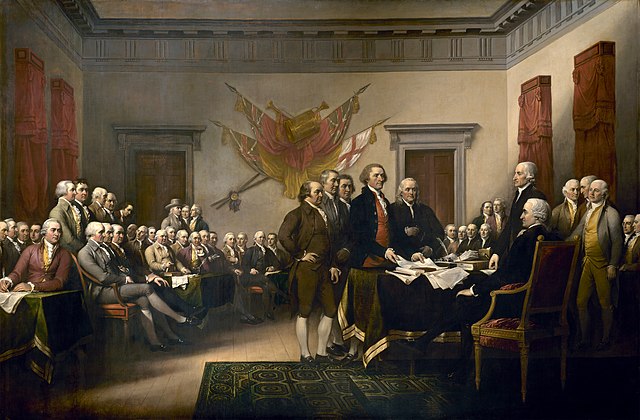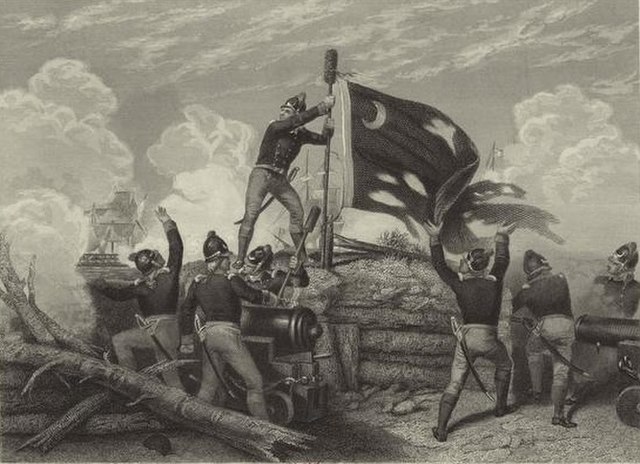The Battle of Princeton was a battle of the American Revolutionary War, fought near Princeton, New Jersey on January 3, 1777, and ending in a small victory for the Colonials. General Lord Cornwallis had left 1,400 British troops under the command of Lieutenant Colonel Charles Mawhood in Princeton. Following a surprise attack at Trenton early in the morning of December 26, 1776, General George Washington of the Continental Army decided to attack the British in New Jersey before entering the winter quarters. On December 30, he crossed the Delaware River back into New Jersey. His troops followed on January 3, 1777. Washington advanced to Princeton by a back road, where he pushed back a smaller British force but had to retreat before Cornwallis arrived with reinforcements. The battles of Trenton and Princeton were a boost to the morale of the patriot cause, leading many recruits to join the Continental Army in the spring.

Washington Rallying the Americans at the Battle of Princeton by William Ranney (1848)
General George Washington at Trenton on the night of January 2, 1777 by John Trumbull (1792)
The Battle of Princeton by James Peale (1782), depicts Washington and his headquarters flag.
Site of Joseph Moulder's battery. Mawhood's British troops attacked uphill toward this position.
American Revolutionary War
The American Revolutionary War, also known as the Revolutionary War or American War of Independence, was a military conflict that was part of the broader American Revolution, where American Patriot forces organized as the Continental Army and commanded by George Washington defeated the British Army.
Clockwise from top left: Surrender of Lord Cornwallis after the Siege of Yorktown, Battle of Trenton, The Death of General Warren at the Battle of Bunker Hill, Battle of Long Island, and the Battle of Guilford Court House
The Committee of Five, who were charged with drafting the Declaration of Independence, including (from left to right): John Adams (chair), Roger Sherman, Robert Livingston, Thomas Jefferson (the Declaration's principal author), and Benjamin Franklin
The British repulse a Continental Army attack at the Battle of Quebec in December 1775
Sergeant William Jasper of the 2nd South Carolina Regiment raises the fort's flag at the Battle of Sullivan's Island in Charleston, South Carolina in June 1776








